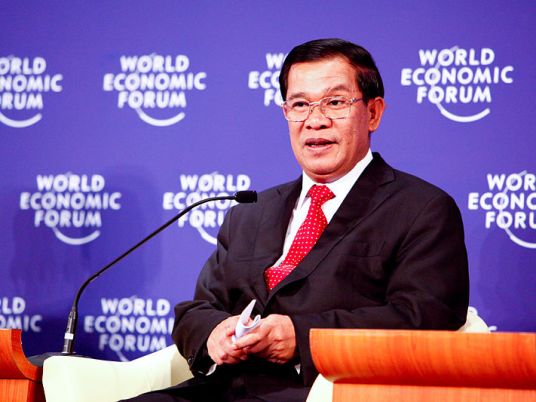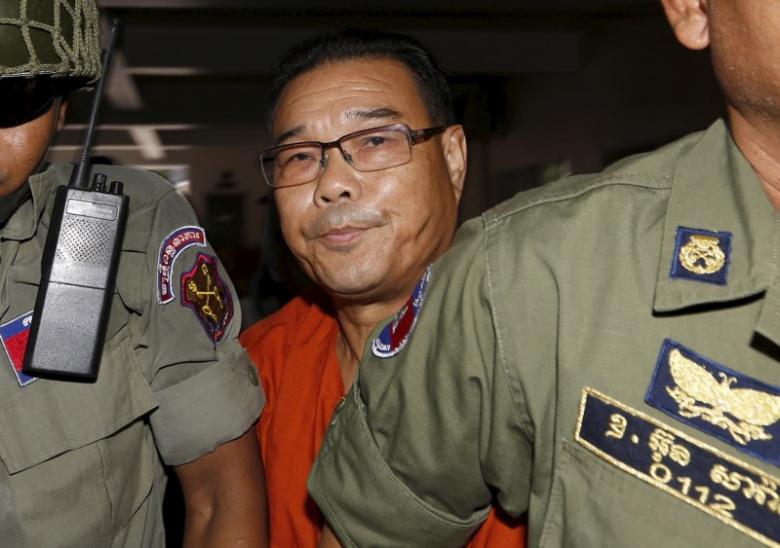
Cambodian riot police used sticks, tear gas and guns to break up a garment workers' strike on Tuesday, killing one woman and wounding eight people in one of the most violent crackdowns on labor unrest in years.
More than 30 people were arrested after protests erupted when police tried to break up a strike by garment workers from a factory supplying global brands protesting against low pay and demanding better working conditions, Reuters witnesses and police said.
Hundreds of police in riot gear, some carrying AK47s, tried to stop an estimated 1,000 workers from the Singapore-owned SL Garment Processing (Cambodia) Ltd. from marching to the home of Cambodian Prime Minister Hun Sen.
Demonstrators set a police car and motorbikes alight. Some protesters were kicked and beaten by police who used teargas to disperse the crowd, witnesses said.
"Protesters threw rocks at authorities and they responded with tear gas and firearms," Chheng Sophors, a worker at local rights group Licadho, told Reuters.
Police arrested 37 people, among them Buddhist monks who had joined the workers' protest, he added, while eight people were wounded by gunfire.
Cambodia's national military police spokesman, Kheng Tito, said four officers were seriously injured during the clash and up to three protesters sustained injuries.
"We are not sure whether the woman died from police gunfire because we have not done an investigation," said Kheng Tito.
The clashes are the latest setback for an industry that has been plagued by strikes over low pay and working conditions.
Workers at SL factory have been demonstrating periodically since early August, with no sign of a resolution.
International brands H&M and Gap Inc have reduced their orders, while United States denim giant Levi Strauss & Co have stopped buying from the factory, local media reported.
Bangladeshi police fired water cannon, tear gas and rubber bullets on Monday to break up a protest by garment workers demanding higher wages, forcing the closure of more than 100 factories.




